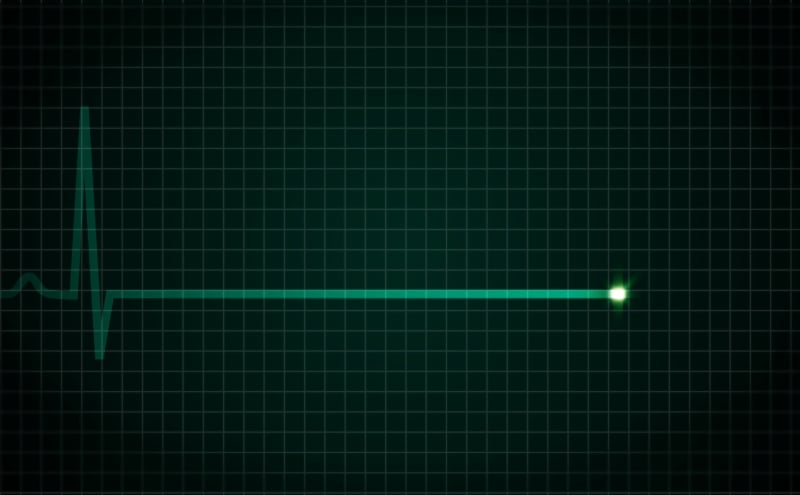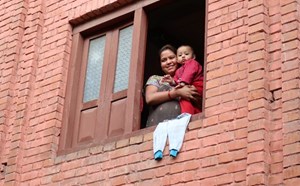
Death Is Usually an Easy Diagnosis
Liana Meffert, MD
In summer, the sun makes its bed as I walk to the hospital for my first overnight emergency medicine shift. I’m paired with a resident for the night. He moves quickly without waste, always saving energy for what’s to come. I can find him easily; his tall shadow behind the patient curtain forms the top of a question mark when he bends close to listen. There’s no urgency in the air, just the steady pulse of work where we are all trusted to play our parts.
We don’t have to wait long for our first trauma page—it’s a man, mid-50’s. He’s been found on the side of a highway; the going story is that he hit a deer with his motorcycle. A deer won’t tell you when it’s about to run. It just goes and doesn’t look back. There are patients you can tell are gone before the first IV bag is hung, though we waste no time assuming our positions. It's a heavily choreographed scene that reminds you just how precious life is. What it means to say you tried.
The first thing to do when you know a patient won’t survive is to call the family. The resident reaches the man’s sister first. No one wants this call. While he is talking, I study his face, because no one wants to make this call either. His face reveals nothing, and then I hear, “What is his favorite song?”
When the family arrives, the resident and I make our way from the trauma bay to a small conference room where they wait. His mom is here; so is his sister and wife. His sister has brought a close friend she leans heavily against. It’s early morning, and the heat hasn’t left the building. Fans whir over a silence we aren’t eager to break. He’s dead.
The mother’s face breaks into a silent scream of grief. The wife holds out a page to us like a defense drafted on lined binder paper: “He left this note on our breakfast table this morning.” A room away, nurses work to staunch the blood still oozing from the back of her husband’s head while a janitor mops the expanding pool from the floors.
We’re about to take them back to the trauma bay when the resident leans forward, “Sometimes when someone is gone suddenly, it’s easy to feel like things have gone unsaid.” He lowers his voice like we are all in this together: “If you can’t find the words, try, ‘You're okay. You're not alone. I’m sorry. I love you. I'll be okay.’” A row of chairs has been set up in the trauma room, and the lights dimmed. It’s quiet enough that I can hear music. The sister only said, “soft rock,” and that’s what plays now. I hope the man is listening, but I know this is for us, too.
I’d seen death before, on an overnight trauma shift early in my third year. The intern on call had been asked to make a death pronouncement for a woman up on the 7th floor. She had never performed one, and, of course, neither had I. I scrolled through my phone in the elevator and read out loud, “Death is usually an easy diagnosis. If death is uncertain, lack of pulse, breath sounds, and heartbeat will usually suffice….” It seemed so simple then. The elevator rises as we rehearse our lines.
When we come to the room, the family sits quietly, the lights dim like in a nursery. There is no uncertainty here; her chest is conspicuously slow, her mouth agape. The intern listens to her heart and lungs and feels for a pulse. The intern is a good intern. She knows they are watching.
The key to living is outpacing death. But I have a role to play now, so I stay. All I ask is for a second to say this heart was beating, and now it is still. Had I read further that night, the elevator rising, I would have found this warning, or could it have been a prayer? “[Death] is a solemn ritual, the importance of which transcends the business of certification.” I don't know how this story ends. However close health providers are to death, it remains enigmatic.
It’s six months, maybe seven, after my first overnight shift in the ER. The hospital is a thing that breathes; it has feelings. I hold every life I love with two hands in these halls. On a chilled March morning with tulips tight as fists, I learn the resident has died. Someone said it was kidney failure. I don’t even know if that’s true, but it doesn’t matter. I only want to know his favorite song. I find an obituary in the local newspaper. The snow is still a stubborn white blanket over the cornfields.




